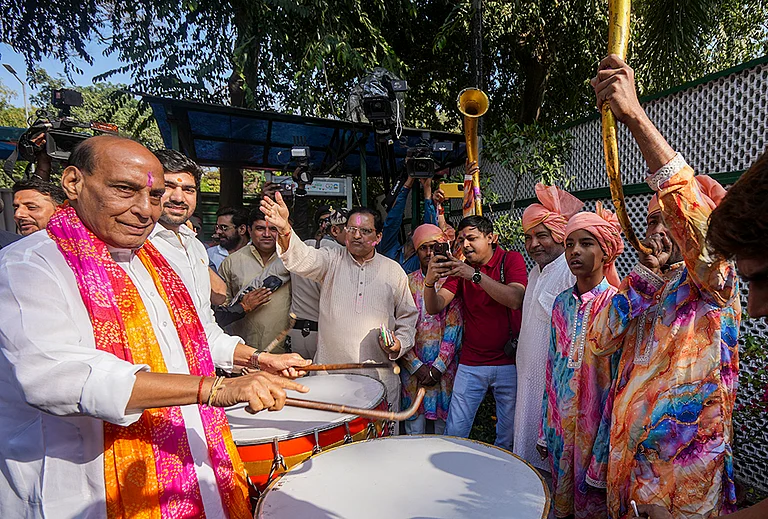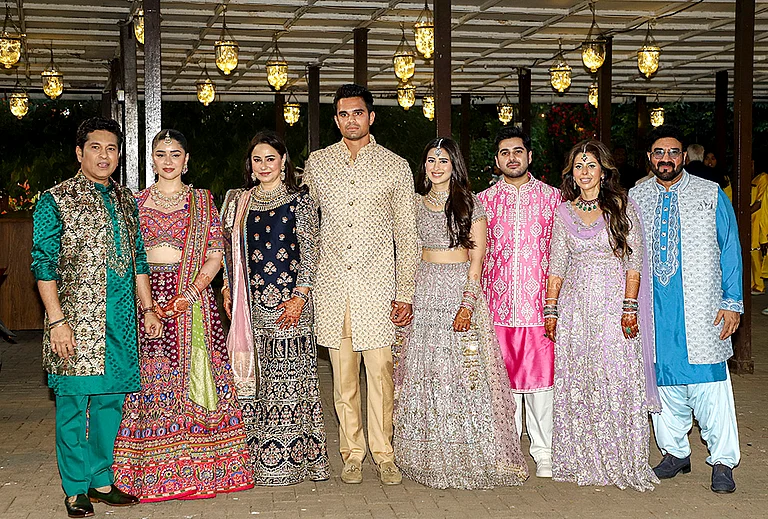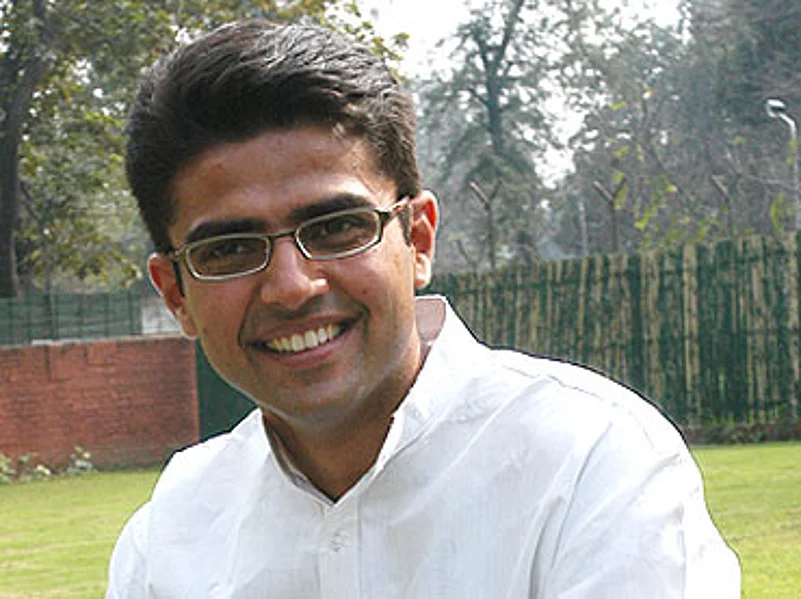
"Yes I'm on Facebook but I'd rather like to keep that part of my life private."
Are you on Facebook yet? It's one question that drives more than 1.6 million Indians to the wildly popular social networking site everyday, one that prompts them to send out a message or a poke to all the hundreds of people that they've ever come into contact with during their lifetime: playmates in nursery school, old neighbours, friends in school, distant cousins and close relatives, buddies in college, colleagues at work, even passing acquaintances.
Once "added as friend", you can access one another's profile pages: altars of personal trivia bedecked with flattering portraits which, like that of Dorian Gray, remain immune to the depredations of time, which visiting friends may "poke" by way of hello. The profile shares details on where you've worked and studied, your addresses and numbers, your favourite books, films and quotes, your close friends' nicknames for you, their opinion of you, the photos they've posted of you, and, through their public messages to you on your "fun" or "super" wall (a sort of virtual notice board), a blow-by-blow account of the happenings of the day before. Your plans for the rest of the week, as they unfold, and any additions you make to your profile, all go into a "news-feed" on your friends' accounts, so they can see what you're up to. You can also modify what's known as a "status message", to update friends on your current state of mind or location: to wit, 'Neema has gone to Phuket' or 'Matthew is very hungover'.
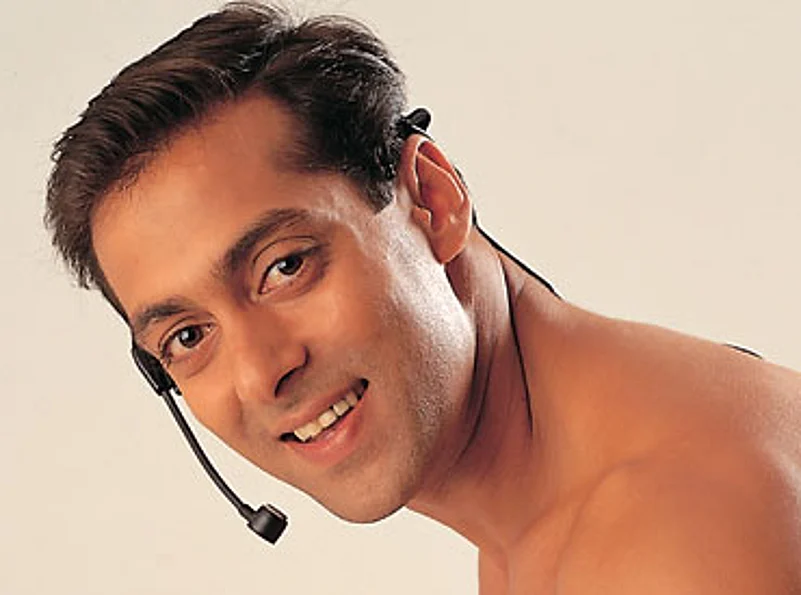
Salman Khan - Actor
His Facebook page, in sharp contrast to his real life, is free of drama.
This selective exhibitionism, and the ongoing commentary it attracts from your friends, draws on natural human traits like curiosity, sharing and socialising. But, as sociologist Dr Radhika Chopra points out, "it's also a reinvention of the notion of privacy.... The need to display ourselves, to breach the public-private divide is part of consumption culture. It's like the people who use their mobile phones in malls or parks, carrying on private conversations in public. In the same way, Facebook users are drawing attention to themselves, saying, 'Look, I'm connected!'."
Then there are the usual reasons to which people attribute their Facebook addiction—long hours spent tied down to workstations, distances in metro cities, the fact that many more people now live and work in cities and countries other than the ones they grew up in, all of which make it difficult to meet friends as often as one would like.
But what sets Facebook apart from other networking sites? What makes journalists, babus, businessman, intellectuals, sports stars and actors set up their own Facebook profiles, and prompts billionaires to try and buy a piece of it?
Plenty, as it turns out. For one, it's clean outstripping the competition. Friendster, the grizzled progenitor of all social networking sites, has practically fallen defunct. MySpace never took off in India, except amongst a handful of aspiring musicians fishing for record deals. Hi5 was swiftly denounced as dubious and downmarket. And Google's Orkut—the longtime leader of the pack with 7.1 million Indian users—is overrun by porn and the police, thanks to the base intents of its users, and the hate groups, stalkers and murderers drawn to it.
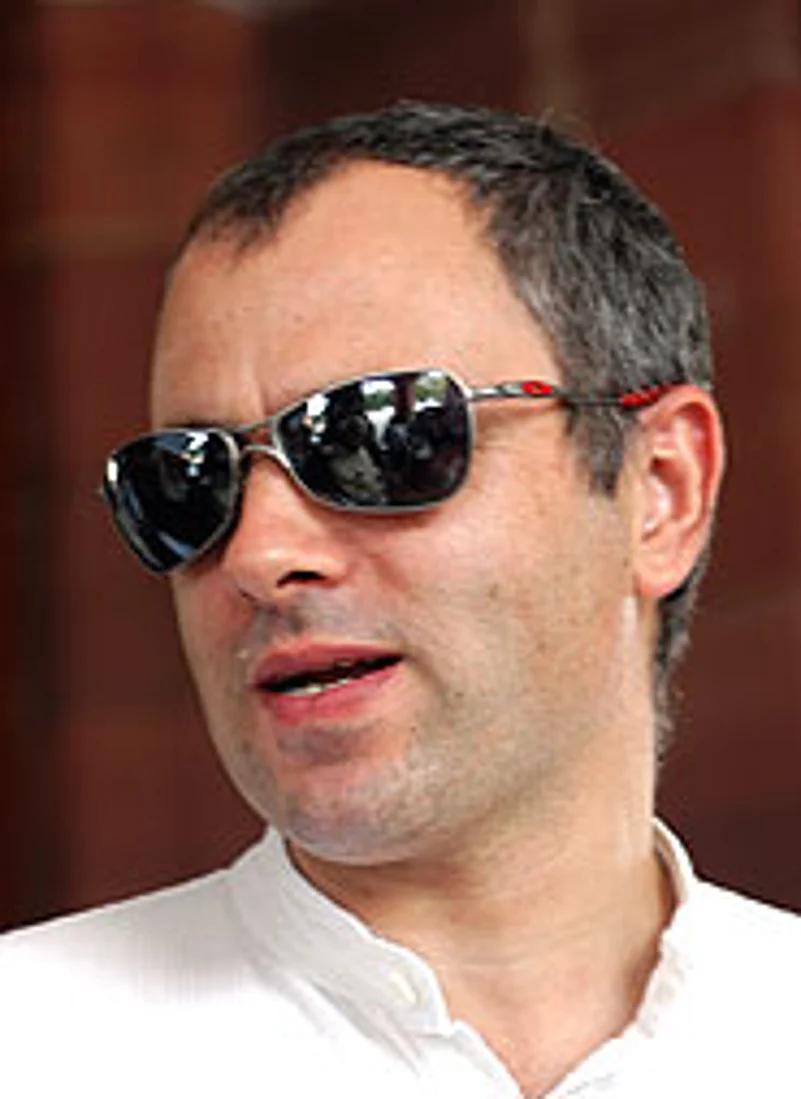
| Omar Abdullah - Politician Checks Facebook regularly on his Blackberry. "You can really get sucked into it," he says. Flooded with messages from people wanting to discuss Kashmir politics. |
Facebook, on the other hand, has a whiff of pedigree, privilege and exclusivity about it, since it was founded by Harvard student Mark Zuckerberg and was originally restricted to students of Harvard and other Ivy League colleges; an impression strongly reinforced when a study last year concluded that Facebook users tended to be better-educated and wealthier than those on other networking sites. That Facebook comprises a well-heeled crowd that freely shares its consumer tastes means that even if its numbers don't quite match Orkut's, it's by far the most sought-after hunting ground for market researchers and targeted advertising (see What Pops Up).
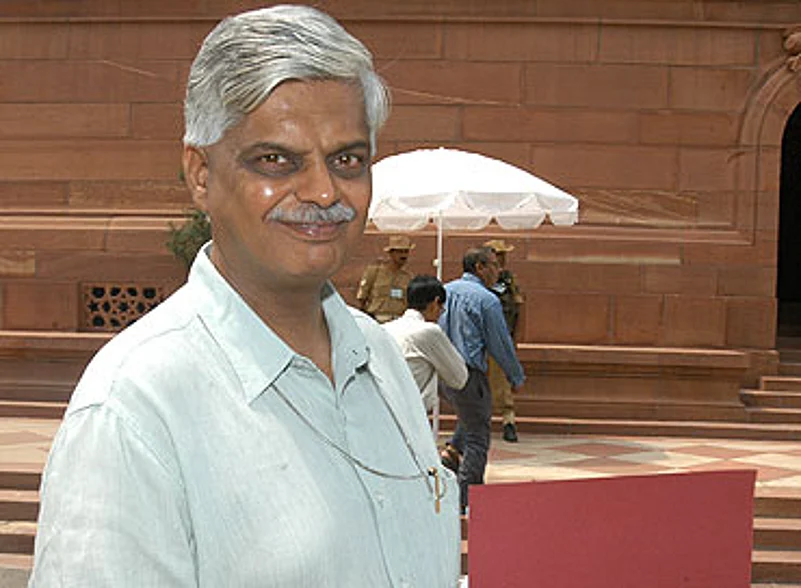
Sanjaya Baru - PM's press advisor
His Facebook profile gives away nothing, except to state that his political and religious beliefs are "liberal and secular".
What explains the success of Facebook? Mumbai-based communications consultant Peter Griffin, who has extensively researched social networking sites, attributes it largely "to the control that you get over your privacy". "On Facebook," he says, "I can choose what each person gets to see. I wouldn't like to share my personal life with the people I work with. The more control members have over who can access their information, the more comfortable they'll be using the product." As the creator of an immensely popular writer's group, Caferati, Griffin is also one of the many users who capitalise on Facebook's multiplier "network effect"—the critical mass of people who have joined up—which makes it a successful and instant way to publicise collectives and events like book launches, parties or plays, and remind people to actually make it.
Not just that, ever since Facebook opened up its platform last May to independent developers of applications, there has been a deluge of new games to play with. Users can add these to their profiles and also have fun with a host of interactive functions that enable non-verbal communication with friends. So, friends passing by needn't just leave a message, they can also "bite your zombie", "tickle your pet hamster", gift you an "egg that might hatch a Chihuahua", and, through the "super poke" application, "karate-chop" you or "throw pies" at you (see Glossary).
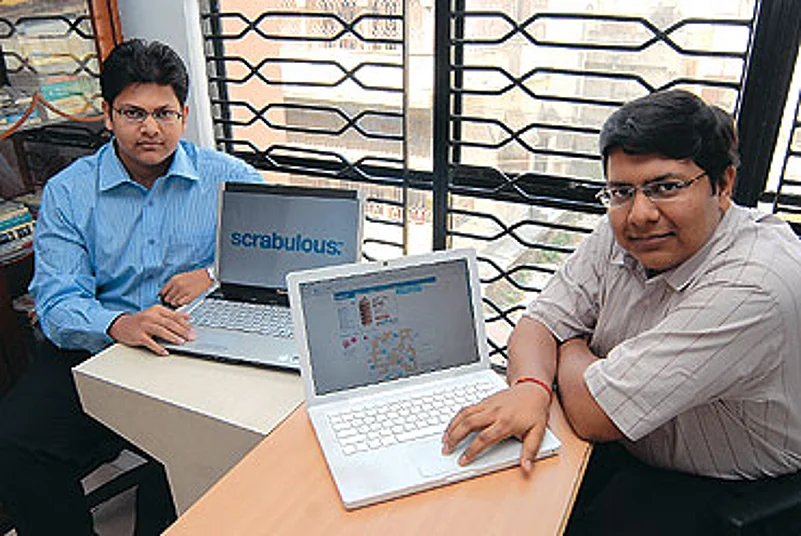
Bingo! Calcutta-based siblings Jayant and Rajat Agarwalla who started Scrabulous, a rage on Facebook and in copyright trouble
Among the most successful of these applications is of desi design—Scrabulous. Invented by Calcutta-based brothers Rajat and Jayant Agarwalla, this is a Facebook application of Scrabble you can play long distance with friends. The game attracts 6 lakh users daily, and is currently beleaguered by copyright issues from Hasbro and Mattel, the co-owners of Scrabble. Scrabulous has plenty of ardent fans, including about 47,600 who have formed a "Save Scrabulous" group, and threaten boycotts if it is scrapped. Usha Varadarajan, a 65-year-old Delhi entrepreneur, is one such ardent fan, even if an unlikely one. A self-confessed "tech-unsavvy person" who only got familiar with the computer after a course a month ago, she's already a regular Scrabulous player. "I'm hooked," she admits. "Most nights, I play it from 10.30 pm to 2 am—with friends as well as strangers!"
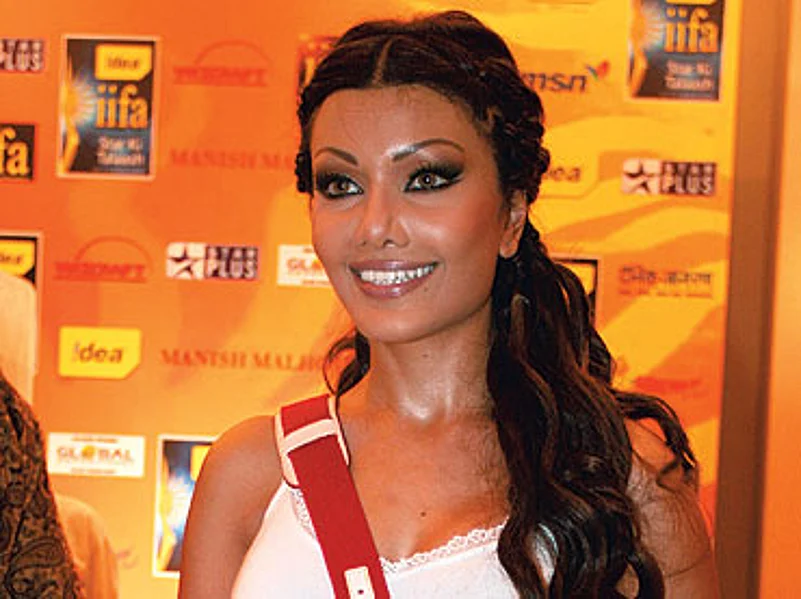
Koena Mitra - Actress
Uses Facebook's 'Damn Cute' applications to draw on her friends' graffiti walls, send them music videos, flowers, cards and the occasional cow.
Long-distance Scrabble games, and hours spent tweaking your profile into an aspirational self-image are some of the questionable uses Facebook is put to, forcing many critics to comment that Facebook doesn't actually 'connect you with the people around you', as its slogan promises. Instead, it leads to employees, left alone before their workstations, spending precious company time dawdling on their friends' walls or tickling their hamsters—a trend that's become so widespread that it has led to many offices blocking access to social networking sites.
The isolating effect of keeping "connected" also shows up in the dismal tradition termed the 'Facebook Party'. It refers to an evening spent with a group of friends who decide to simultaneously stay home and interact through comments and Facebook applications. Young law student Kaneez Surka swiftly put an end to that paralysis in her social circle when she took this tradition live: threw a Facebook theme party at her flat, inviting all her Facebook friends to bring their Facebook friends over. "We used to joke, no one's got a social life anymore, everything happens on people's walls," laughs Surka. "So, we said, let's get everyone out of their houses for a change."
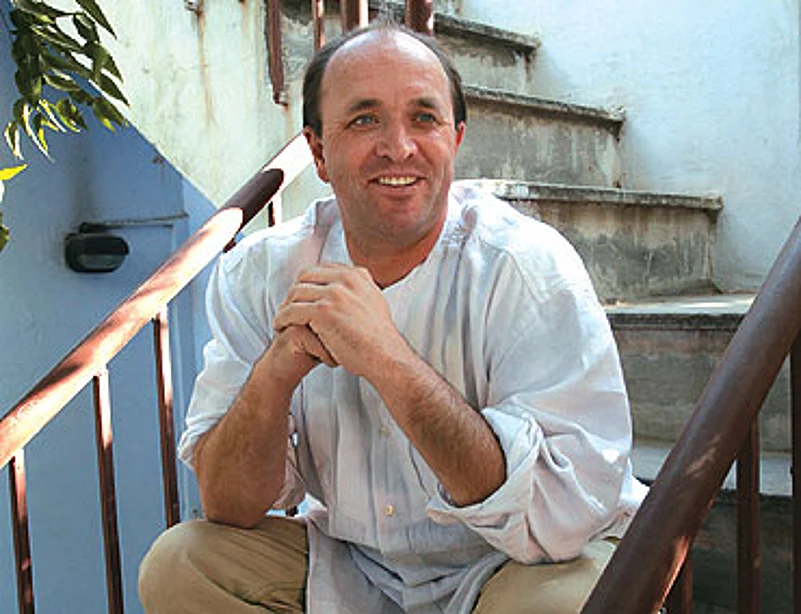
William Dalrymple - Author
"I am a very enthusiastic Facebooker." Used 'Events' application to organise Jaipur Literature Festival.
About 50 people showed up, and were each given a sheet of paper to tack on the fronts of their shirts, with a mock "profile" to fill up, and one at the back—a "wall" friends could scribble on. The bar was called 'Upload', the bathroom, 'Download', and a cosy lounge-space equipped with toothpicks and straws was designated the 'poke' room. Friends divided up into common-interest "groups". Recalls Surka, "There was a red underwear group, an I'm-still-a-virgin group, and an I love Andaz Apna Apna group."
Aspiring drummer, 22-year-old Manik Acharya, is another one of those who believes that Facebooking can actually spur on real-life interactions. "It stimulates conversations with other people because they always know what you're up to. Often you don't need to ask what's up because you saw it on Facebook five minutes ago! So it maintains a loop, cuts down distances."
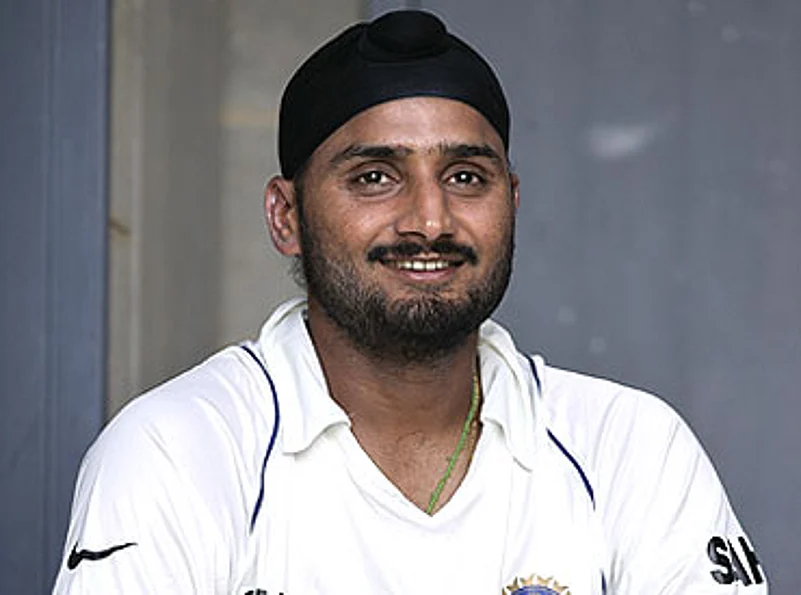
Harbhajan Singh - Cricketer
His 115 Facebook friends include Robin Uthappa, Yuvraj Singh - and lots of women.
Yet cutting down distances isn't always a good idea. When the "friendship" net widens to include your parents and boss, for instance, you need to be circumspect about the photographs you allow friends to "tag" of you, which can be accessed from your profile page. "My parents, their friends, and my 80-year-old uncle are on Facebook, so I changed my security settings to hide all photographs!" says Surka. "Because one of my parents saw a photo or two of me with a drink in my hand, and said, 'I think you party too much!'."
Too much personal information floating about on Facebook is just one of its pitfalls. Another is the chance that a chagrined ex might air your dirty laundry on their status message, so that on the news-feed of hundreds of your friends appears words like: 'Mallika is no longer dating a lying, cheating, low-down snake'. There's also the flip side of the network-effect rule: the more people that join a network, the more you are likely to having to submit to "friendings" by people you're indifferent to, or actively dislike and would like to avoid: bullies, old classmates you barely spoke to, and the odd, really odd, ex-co-worker.
Nevertheless, despite all the quibbles users might have with Facebook, they continue to flock to it, and linger there, on average, for a good hour-and-a-half each time. Says Roshni Bajaj, writer and avid Facebooker, "It's a great way to stay connected without being intrusive. I just spend half-an-hour a day there, and I never hear that phrase I used to hear all the time: 'You don't keep in touch'."




